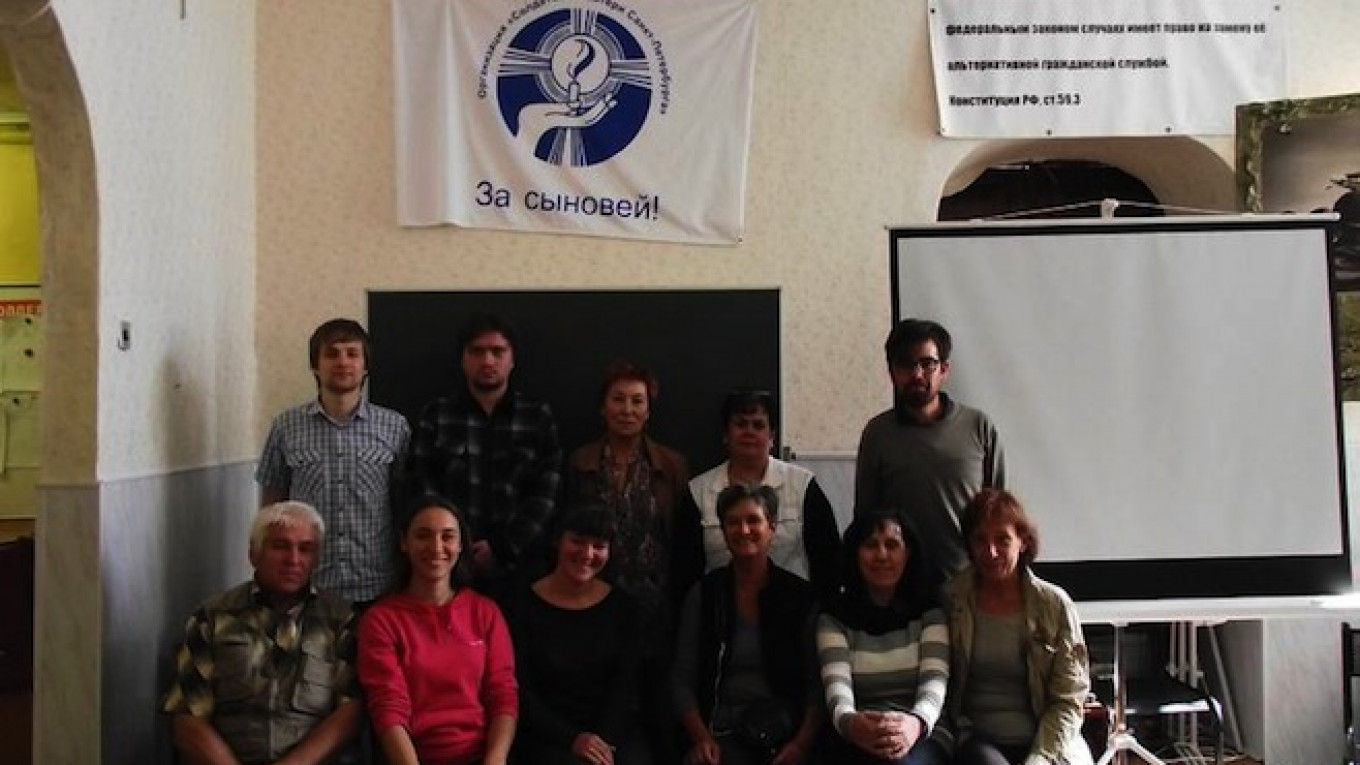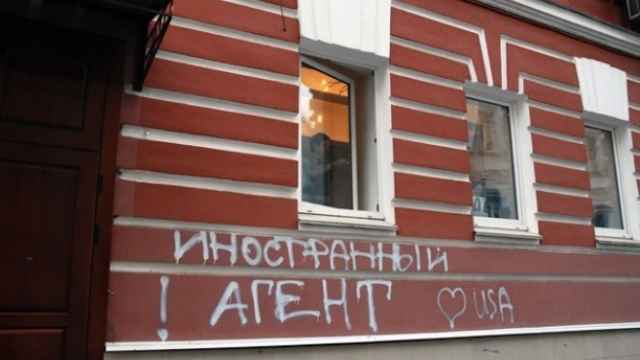The Justice Ministry has added two beleaguered NGOs to its list of "foreign agents," according to the ministry's online registry.
Two St. Petersburg-based organizations, the Institute for Information Freedom Development and Soldiers' Mothers of St. Petersburg, are the latest NGOs to be labeled foreign agents under a controversial law passed in 2012 under which the tag is applied to NGOs with any foreign funding whose activities can be defined as "political."
Both of the organizations have made headlines over run-ins with the authorities in recent weeks.
This month, Jennifer Gaspar, the U.S. wife of the Russian founder of the Institute for Information Freedom Development, Ivan Pavlov, was deported after being deemed a national security threat. No grounds were provided by the Federal Migration Service for the decision. Both Gaspar and Pavlov cited his organization's work, as well as the fact that Gaspar had worked as a consultant for a range of other NGOs in Russia during the 10 years she had lived here.
The St. Petersburg branch of the Soldiers' Mothers group made waves earlier this week when its head, Ella Polyakova, who is also a member of the Kremlin's human rights advisory body, said Russia had invaded Ukraine.
"When masses of people, under commanders' orders, on tanks, APCs and with the use of heavy weapons, [are] on the territory of another country, cross the border, I consider this an invasion," Polyakova said in comments to Reuters.
In a separate interview with independent television channel Dozhd on Wednesday, Polyakova said 100 injured Russian paratroopers had been flown to a St. Petersburg hospital from an undisclosed location, and that Russian soldiers in Dagestan had been paid 250,000 rubles ($7,000) to fight in Ukraine. Both claims were touted by journalists as proof that Russia had begun military operations in Ukraine.
Despite speculation that Polyakova's statements had prompted the Justice Ministry to include the group on the "foreign agent" list, a statement on the group's website posted earlier this month says the group has faced harassment by authorities ever since the adoption of the law in 2012.
The law has sparked concerns among many activists who say the "foreign agent" label carries negative Cold War connotations and that the move signals a government crackdown on civil society.
In early June, President Vladimir Putin stirred more criticism after signing legislation amending the original law — which required the NGOs themselves to register as "foreign agents" — to allow the Justice Ministry to apply the label to organizations without their consent.
Other organizations on the list include the election monitoring group Golos and the human rights organizations Agora and Memorial.
A Message from The Moscow Times:
Dear readers,
We are facing unprecedented challenges. Russia's Prosecutor General's Office has designated The Moscow Times as an "undesirable" organization, criminalizing our work and putting our staff at risk of prosecution. This follows our earlier unjust labeling as a "foreign agent."
These actions are direct attempts to silence independent journalism in Russia. The authorities claim our work "discredits the decisions of the Russian leadership." We see things differently: we strive to provide accurate, unbiased reporting on Russia.
We, the journalists of The Moscow Times, refuse to be silenced. But to continue our work, we need your help.
Your support, no matter how small, makes a world of difference. If you can, please support us monthly starting from just $2. It's quick to set up, and every contribution makes a significant impact.
By supporting The Moscow Times, you're defending open, independent journalism in the face of repression. Thank you for standing with us.
Remind me later.






